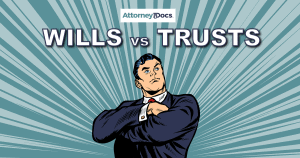
Of course, tech gave us more than hashtags and Netflix (though we gotta admit, Netflix is pretty great). It’s infiltrated nearly every industry and the legal profession is no exception. For starters, it’s changed what we litigate in the first place: cybersecurity is one of the top national security threats; social media has been the foundation for countless privacy and harassment suits; and Google’s self-driving cars were recently declared legal drivers, a ruling that could have interesting implications come the first collision.
But while it’s sometimes been tough to keep up with tech, it’s also been a blessing in disguise. Social media has provided law firms with a new marketing platform and countless companies have popped up to simplify – and diversify – the legal practice. Some offer lawyers better access to resources, like online research database LexisNexis or patent analysis company ClearstoneIP. Others increase access to the lawyers themselves, like Legal.io, and even more have found new ways for lawyers to work like the freelance site Hire an Esquire.
Relatively new to the scene is Lawyers Help Lawyers. Based off the successful TeachersPayTeachers.com, Lawyers Help Lawyers applies a proven formula to address a need previously left unfulfilled by the tech boom. As the first and only open, online marketplace for legal professionals and law students to buy and sell their work, Lawyers Help Lawyers has previously been deemed the “eBay for lawyers”. Documents are available for purchase in any field and any state, promoting industry collaboration and opening up new avenues for revenue and research.
Even more recently, the Harvard Library Innovation Lab announced the “Free the Law” project, a massive undertaking to digitalize one of the largest legal libraries in the world. All of these organizations are making the industry more connected than ever before, leading lawyers to embrace collaboration and providing professionals with more time, more money, and more resources.
So what does all this mean for the legal industry? Perhaps only time will tell. As long as global technologies advance, our understanding of the legal system will continue to be challenged; as legal technologies advance, however, so will our ability to overcome these challenges.
We are truly entering a new era of legal practice.







